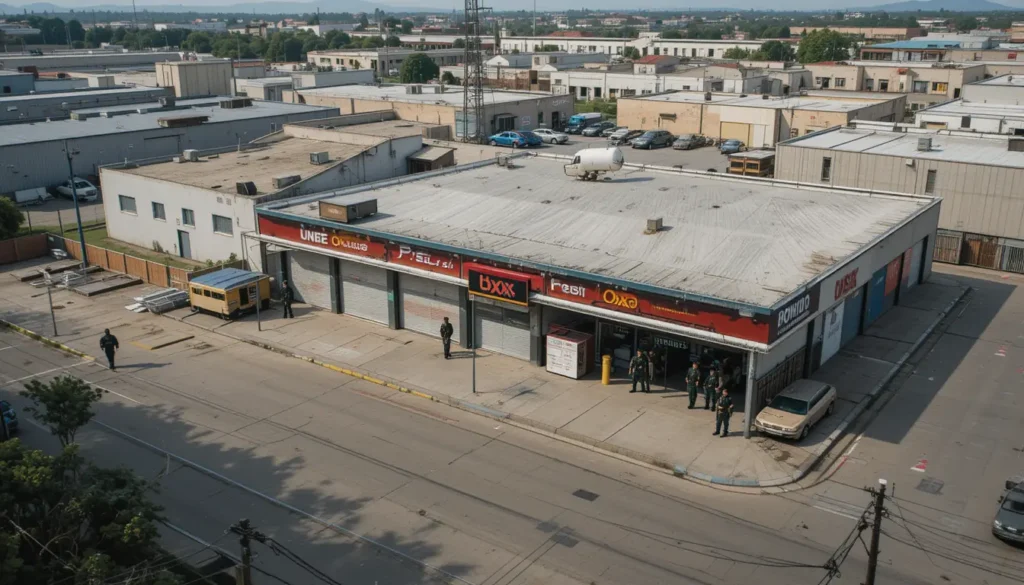Web Desk
It all comes down to money. Some chase it. Some can’t live without it. And some—cartels and criminals—will stop at nothing to get their piece of the pie.
In today’s Mexico, multinational businesses face pressure not just from tariffs or trade disputes but from something far darker: ruthless criminal control of the economy.
U.S. companies with operations in Mexico are staring down a deadly trifecta—extortion, hijacking, and violent coercion.
This wave of criminal pressure is now so severe that it’s shaping corporate decisions, putting lives at risk, and sending shockwaves through supply chains stretching deep into the U.S.
Cartels Rule Key Economic Zones
Cartel activity isn’t limited to back alleys. Today, it reaches deep into Mexico’s heartland:
The Bajío Region — including Queretaro, Guanajuato, Jalisco, Aguascalientes, and San Luis Potosí
Northern Border States — like Tamaulipas, Nuevo León, and parts of Chihuahua
These areas aren’t rural crime scenes—they’re major industrial hubs where global corporations build cars, electronics, and machinery.
For cartels, these zones are economic goldmines. They control transportation, sales, even the pricing of goods, according to recent reports.
Cartels Target Multinational Firms
As cartels grow bolder, U.S.-linked companies are under fire. In a recent media report, multiple firms spoke about rising extortion attempts, hijacked deliveries, and threats against employees.
Organized crime is trying to force law-abiding staff to tolerate or participate in illegal activities—including smuggling.
Trump’s administration previously declared Mexican drug cartels as Foreign Terrorist Organizations, amplifying diplomatic tensions and drawing fresh attention to cartel influence near the U.S.-Mexico border.
Business leaders say they’re trapped. “We are hostages to extortion demands. We are hostages of criminal groups,” said Julio Almanza, a Tamaulipas businessman. Just hours later, he was assassinated for speaking out.
Oxxo Shuts Down—A Tipping Point
In one of the most visible responses to cartel pressure, Femsa Corporation, which owns Oxxo, shut down all 191 convenience stores and seven gas stations in Nuevo Laredo in 2024. It was a powerful symbol: even major corporations are surrendering turf to criminals.
This growing fear isn’t isolated.
A 2024 survey by the American Chamber of Commerce in Mexico found one in eight U.S.-affiliated firms reported that cartels had taken control of their product pricing, sales, or distribution.
2025 Threat Forecast: It’s Getting Worse
Virginia-based security firm Global Guardian issued a grim warning in its 2025 Threat Assessment.
It says cartel extortion is expanding rapidly and now includes larger, high-value targets.
Without major security reforms in Mexico, U.S. firms operating there could face even greater threats, the report warns.
“Absent a substantial change in Mexico’s security landscape, extortion will pose an increasing threat to Western firms,” said Michael Ballard, the firm’s intelligence director.
Carjackings, Black Markets, and Global Risk
Central Mexico, long a hub for auto and appliance manufacturing, is especially vulnerable.
Ballard notes that truckloads of finished products are being hijacked, their cargo stolen, and resold on the black market.
These thefts don’t just hurt local economies—they undermine global supply chains.
The threat is no longer abstract. From the factory floor to the freeway, cartels are muscling into legitimate business.
And as extortion becomes what some call Mexico’s “national sport,” businesses face a chilling question:
How long before they’re forced to shut down or fight back?



